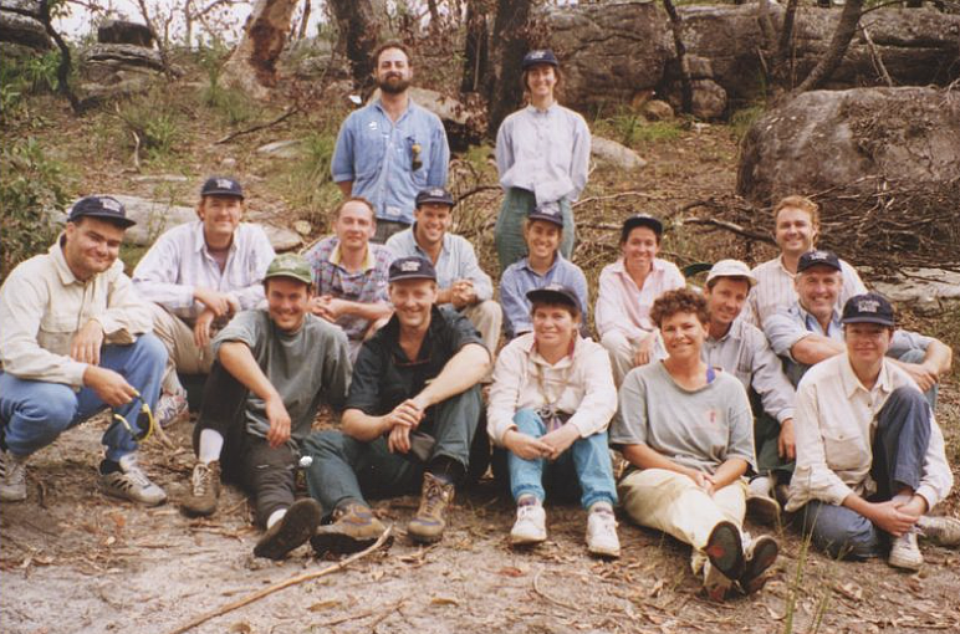
ICDA and BoardPro partnership unlocks digital governance tools for not-for-profits nationwide
Posted on 10 Dec 2025
Adele Stowe-Lindner, Executive Director, Community Directors The Institute of Community Directors…
Posted on 19 Mar 2025
By Matthew Schulz, journalist, Institute of Community Directors Australia

A national grief counselling service has won a short-term reprieve after a furious backlash against a shock funding cut.
Griefline’s phone counselling and online service this week was given a few months’ grace – extending its operations to June 30 – after funding to the 37-year-old service was initially slashed, which threatened to shutter the essential service.
While demand for the service has doubled in the past year and providing help for 30,000 people, the service was set to shut down permanently this week, before the last-minute $400,000 funding injection.
People seek help from the service over the loss of a loved one, a miscarriage, a break-up, losing a pet, or the loss of their home or livelihood.

“With just 24 hours to go before its scheduled closure, Griefline has received confirmation that … Mark Butler, Minister for Health and Aged Care, has agreed to provide additional funding for our Helpline to continue operating,” Griefline chief executive Kate Cahill said.
Cahill said news of the initial funding cut sparked “an overwhelming public response”, with hundreds of supporters writing to MPs, national media coverage, and the issue being raised in federal Parliament.
Politicians pressing for answers included Liberal Senator Hollie Hughes, who raised questions about cuts in a recent Senate Estimates hearing, prompting federal Health Minister Mark Butler to backtrack.
Earlier this month, the Community Advocate reported that 13 charities were caught up in $300 million worth of funding cuts in the mental health field.
These charities included Red Nose, Black Dog Institute, Roses in the Ocean, Karitane, Headspace and SANE Australia. They had been told they needed extra accreditation – which they didn’t have – to be eligible for funding.
The issue prompted Prime Minister Anthony Albanese to personally intervene to ensure funding for Red Nose continued, blaming “bureaucratic errors” for the organisation suffering a $6 million funding cut.
“Grief support is not just a nice-to-have; it is an essential service that plays a critical role in preventing mental ill-health, including suicide."
Cahill told the Community Advocate this week that Griefline continued to battle with a tangle of paperwork, and that its future funding remained “precarious”.
“Unfortunately, the bureaucratic failures did not end there. After missing out on the original funding round, Griefline, Red Nose, and several other organisations were invited to re-apply for funding through another grant process, which is still not open. This process is listed as a ‘Forecast Opportunity’ on GrantConnect, meaning it remains subject to revision, withdrawal, or cancellation.”
Griefline will need $865,000 a year to keep its helpline operating, but those funds remain uncertain as long-term grant agreements cannot be struck when the government enters election “caretaker mode”.
“Concerningly, the government’s own guidelines state that if an election is called before this process is concluded, funding decisions may be delayed or even cancelled altogether,” Cahill said.
“While this is a huge step forward, we know the fight isn’t over. Long-term funding remains uncertain, especially with an imminent election.”
Cahill said the service was sorely needed and aligned with Mental Health Australia’s push for a better deal for providers.
“Grief support is not just a nice-to-have; it is an essential service that plays a critical role in preventing mental ill-health, including suicide.
“Grief is a universal human experience, yet grief support remains vastly underfunded in Australia’s mental health system. Without early intervention, grief can compound into serious mental health challenges. We will continue working with our industry peers to advocate for a system where grief support is recognised as an essential service and adequately funded, so that no one in Australia has to face loss alone,” Cahill said.
This week, the Griefline service was offering help for those affected by ex-Tropical Cyclone Alfred alongside its usual services, but noted “longer wait times”, as the organisation reconnected with volunteers and worked to fully restore the Helpline service.
“After my husband died suddenly, I was frozen in my emotional and mental distress. I wasn’t ready to see a psychologist or my doctor – I simply couldn’t get myself out of the house. So, I called Griefline. I spoke with some of the most empathetic, non-judgemental, caring, and understanding people I have ever met. They listened. They understood. They stood by me and encouraged me to keep going.”
“I have been using the helpline support service during the month of February due to three family members passing within the last six months. The support workers have helped me immensely. The fact that the helpline completely focuses on grief makes it a very unique and necessary service.”

Posted on 10 Dec 2025
Adele Stowe-Lindner, Executive Director, Community Directors The Institute of Community Directors…

Posted on 10 Dec 2025
The Australia Institute has called on the federal government to force Australian businesses to be…

Posted on 10 Dec 2025
Economic empowerment is essential to enabling recovery, restoring agency and preventing future…
Posted on 10 Dec 2025
A long-time advocate for rough sleepers in northern New South Wales has been named her state’s…

Posted on 10 Dec 2025
What a year 2025 has been, particularly at a national level where the Parliament and politics as we…

Posted on 10 Dec 2025
Anyone working in an organisation knows it: meetings follow one after another at a frantic pace. On…

Posted on 10 Dec 2025
As a qualified yoga instructor who learned the practice in her hometown of Mumbai, Ruhee Meghani…

Posted on 10 Dec 2025
Community Directors trainer Jon Staley knows from first-hand experience the cost of ignoring…

Posted on 10 Dec 2025
Stressed, overwhelmed, exhausted… if you’re on a not-for-profit board and these words sound…

Posted on 10 Dec 2025
The Institute of Community Directors Australia trains over 22,000 people each year, which gives us…

Posted on 09 Dec 2025
The late Sir Vincent Fairfax is remembered as a business leader, a chairman of AMP, and an active…

Posted on 08 Dec 2025
A pioneering welfare effort that helps solo mums into self-employment, a First Nations-led impact…